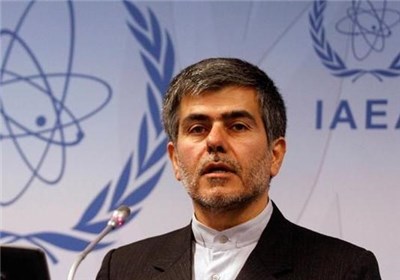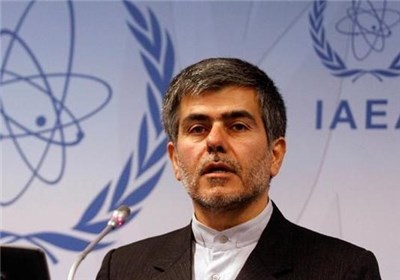 TEHRAN (Tasnim) � Iran has the technical know-how to manufacture research reactors under the international standards, former head of the Atomic Energy Organization of Iran (AEOI) said, adding that the local scientists have managed to modernize Tehran Research Reactor by themselves.
TEHRAN (Tasnim) � Iran has the technical know-how to manufacture research reactors under the international standards, former head of the Atomic Energy Organization of Iran (AEOI) said, adding that the local scientists have managed to modernize Tehran Research Reactor by themselves.�Speaking in an exclusive interview with Tasnim, former AEOI chief Fereidoun Abbasi, who is also a renowned physicist in Iran, said the capability to modernize Tehran Research Reactor gave the country�s negotiators an upper-hand in the nuclear talks years ago, when the world powers offered to update the reactor in exchange of concessions.
Iran uses the Tehran Research Reactor, a light-water nuclear reactor given by the US in 1967, to produce radio istotopes for medical and agricultural purposes.
Abbasi noted that the local scientists managed to renovate the reactor and equip it with modern control systems, saying the success gave Iran the confidence that it can even �modernize research reactors of the other countries.�
�We have also gained the capability to design new reactors under new standards, and we are able to build 10-megawatt reactors from A to Z inside Iran with the aim of becoming a manufacturer of research reactors in short time,� he explained.
Abbasi said Iran can even export technical expert services in the field of research reactors in future.
As regards the West�s focus on Iran�s missile program and attempts to link that defense capability with the nuclear talks, the former official said Westerns are opposed to Iran�s missile technology under the pretext of nuclear issue, because �they want to block our access to the space.�
He said in addition to the defensive nature of Iran�s missile program, the program is aimed at carrying satellites into space for scientific purposes.
While Iran and the group of six major world powers (Russia, China, the US, Britain, France and Germany) are in talks to end the West's 12-year-old standoff on Tehran's peaceful nuclear activities, Iranian officials have on different occasions affirmed that the country�s missile capabilities would never be subject to negotiations.
The two sides wrapped the latest round of negotiations in Switzerland�s Geneva on December 17 and are expected to resume talks in January in the hope of clinching a lasting, comprehensive nuclear agreement.
By Tasnim News Agency
The Iran Project is not responsible for the content of quoted articles.











